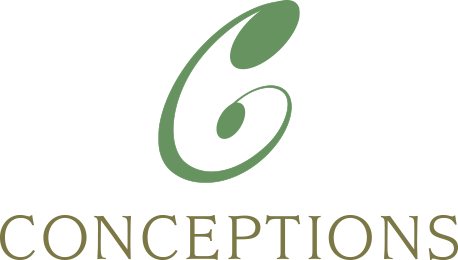Maybe you read recently that actress Jennifer Aniston revealed that she had been an IVF patient while in her late 30s and early 40s. Unfortunately, treatment failed after what sounded like multiple attempts. Her honesty and candor about her experience are refreshing, her resilience inspiring, and a good reminder that fertility planning is family planning for both men and women.
We sat down with Dr. Robert Greene from Conceptions Reproductive Associates of Colorado to discuss how age impacts both egg quality and quantity in women and the importance of fertility planning.
“It is ironic that when people refer to “family planning” they are typically discussing contraception, but we need to change thinking to include fertility planning in that conversation,” offered Dr. Greene. “Like Jennifer Aniston, many women are delaying having children as they pursue their career or other life goals. Equality in the workforce is a good thing but requires some extra planning as a loss of fertility is an inevitability for all women,” added Dr. Greene whose Enhancing Fertility blog offers additional information about the connection between age and fertility.
It’s well documented that by the time a woman reaches her early 30s the number of eggs or oocytes she possesses has declined to an estimated 10% of what she was born with. At the same time, the genetic quality of those eggs also diminishes over time. Data from large prospective clinical trials suggests that by the time a woman is over 40 more than 70% of her eggs are genetically abnormal and unlikely to support a pregnancy.
Getting a comprehensive fertility workup in your early 30s is a great way to understand your chances of achieving a pregnancy just a few years later. Testing for fertility hormones like FSH, AMH, and Estrogen can be good indicators if you’ll need a little help getting pregnant or staying pregnant.
“We offer validated testing methods that allow women to assess their current ovarian health. We also have seen that PGT-A has been an important tool for us to help find the embryos that are more likely to result in a healthy pregnancy and delivery,” shared Dr. Greene who works closely with referring OB/GYN’s to make sure hopeful parents have the facts about their fertility early. “Still, we need to adjust the conversation around family planning to include fertility planning.”
Since the early 2000’s egg freezing has become an important option for women trying to preserve their fertility, thanks to a process called vitrification or a flash-freeze process, Dr. Greene explains,” Freezing eggs or embryos too can profoundly slow the “biological clock” on family building. Younger eggs are most often more successful eggs.”
We’re pleased to say that many companies in Colorado have begun offering fertility preservation as part of employee health plans, but more attention on the issue of fertility planning is needed. While excited about increased insurance coverage for fertility planning, Dr. Greene would like to see more attention on the issue, “There are more and more companies that are including egg/embryo freezing among their employee health benefits. That’s equality. The benefit helps to free women to balance their priorities and make active choices in how they create their future. Like Jen Aniston, patients must be their own advocates and get the answers they need about their fertility sooner than later.”
Connect with Conceptions today to talk about your fertility and help with your fertility planning needs https://www.conceptionsrepro.com/New-Patient-Appointment-Form/


